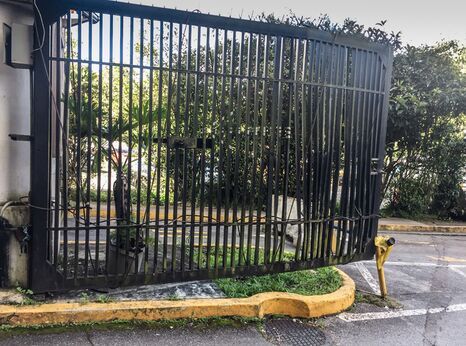Charges against detainee must be dropped

As the world grapples with the COVID-19 pandemic, Nicolás Maduro’s government has used this crisis to further expand and abuse its power. The government has significantly escalated its use of arbitrary detentions of opposition members, real or perceived, as well as other critics. Furthermore, there is evidence of torture, disappearances, and extrajudicial executions committed by the Maduro government.
On 13 July 2020, unidentified officers showed up at Nicmer Evans’ home and, after harassing his wife and family, arbitrarily detained him. He was held incommunicado until 17 July, when he was brought before a court without informing his lawyers and family, therefore denying him the right to a fair trial. During this hearing, Nicmer was accused of “advocacy of hatred”, a crime under a controversial “Constitutional Law Against Hatred, for Peaceful Coexistence and Tolerance”, also known simply as the Law Against Hatred from 2017, based on messages on social media that allegedly “expressed opinions that go against the ideology of Nicolas Maduro”. According to his lawyers, the evidence brought against him by the public prosecution did not specifically identify or indicate the tweets or public expressions in which the "advocacy of hatred" would have allegedly materialized. Copies or screenshots of the alleged incriminating messages were not even recorded in the files.
The “Law Against Hatred” has been challenge by several local and international organizations, since it was proposed and passed by the National Constitutional Assembly (ANC), established in 2017 in an also challenged elections. Even though the ANC does not have any legal attribution to draft and adopt laws, it has passed several acts in form of laws that the judiciary has been applying since then.
Nicmer Evans’ detention is another example of the Maduro government’s policy of repression. Intimidation, harassment, torture, arbitrarily detentions and enforced disappearances are common practices of the DGCIM and the Maduro government. In recent years, dozens of opposition politicians have been forced to flee the country and request asylum in the face of threats they have received from the Maduro government; others have been arbitrarily arrested for being related to an opposition leader or activist. Ordinary Venezuelans who dare criticize their government or join protests also face the threat of detention, and some have suffered forced disappearances or have been killed by security forces. In the context of the ongoing COVID-19 pandemic, medical personnel, journalists and others have faced detention after calling attention to new COVID-19 cases or to the scarcity of medical supplies and basic goods.
In last year’s report, Hunger for Justice: Crimes against Humanity in Venezuela, Amnesty International concluded that the selective extrajudicial executions, arbitrary detentions, and deaths and injuries caused by the excessive use of force by Nicolás Maduro’s government as part of a systematic and widespread policy of repression since at least 2017 may constitute crimes against humanity.
Since 2014 Venezuelans have fled in unprecedented numbers in search of safety and a dignified future abroad. By March 2020, over 5.2 million had fled the country. Due the COVID-19 crisis, many Venezuelans who previously left have been forced back to the country due to collapsing economies and a lack of dedicated support for refugees impacted by the pandemic and its secondary effects. They are also at risk of government retribution.